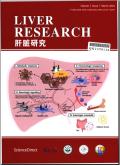Inhaled nitric oxide as a salvage therapy for refractory hypoxemia in the post-transplantation period of hepatopulmonary syndrome: An explorative report of three cases
IF 2.1
Q2 Medicine
引用次数: 0
Abstract
Liver transplantation (LT) is the only effective treatment for hepatopulmonary syndrome (HPS). Moreover, perioperative refractory hypoxemia (pRH) is a prevalent life-threatening condition and has extremely limited treatment options. Here, we report three patients with HPS who experienced pRH after LT and were consecutively treated with different salvage therapies, ephedrine inhalation, intravenous use of methylene blue with nitric oxide (NO) inhalation, and NO inhalation alone. The results showed that unresolved severe hypoxia may induce fatal morbidity such as early biliary leakage and acute kidney injury. Early initiation of NO inhalation, rather than ephedrine, can significantly improve oxygenation in patients with pRH and may help prevent hypoxia-related complications. Therefore, based on the response to these exploratory salvage treatments, we further demonstrate the unique ventilation-perfusion mismatch pathophysiology in specific lung regions during pRH in HPS. We propose that early inhalation of NO is an important treatment option to rescue severe hypoxia in patients with HPS during the perioperative period of LT.
吸入一氧化氮作为肝肺综合征移植后难治性低氧血症的挽救疗法:三例病例的探索性报告
肝移植(LT)是治疗肝肺综合征(HPS)的唯一有效方法。此外,围手术期难治性低氧血症(pRH)是一种普遍存在的危及生命的病症,其治疗方案极其有限。在此,我们报告了三名在 LT 术后出现 pRH 的 HPS 患者,他们分别接受了麻黄碱吸入、亚甲蓝静脉注射与一氧化氮(NO)吸入以及单用一氧化氮吸入等不同的挽救疗法。结果表明,未解决的严重缺氧可能会诱发致命的病症,如早期胆漏和急性肾损伤。早期开始吸入 NO 而不是麻黄素,可显著改善 pRH 患者的氧合状况,并有助于预防缺氧相关并发症。因此,根据对这些探索性抢救治疗的反应,我们进一步证明了 HPS 在 pRH 期间特定肺部区域独特的通气-灌注不匹配病理生理学。我们建议,在LT围手术期,早期吸入NO是挽救HPS患者严重缺氧的重要治疗选择。
本文章由计算机程序翻译,如有差异,请以英文原文为准。
求助全文
约1分钟内获得全文
求助全文

 求助内容:
求助内容: 应助结果提醒方式:
应助结果提醒方式:


